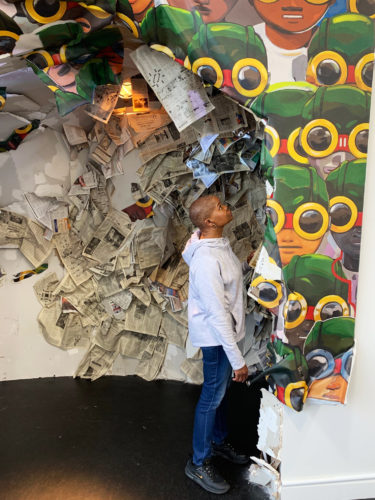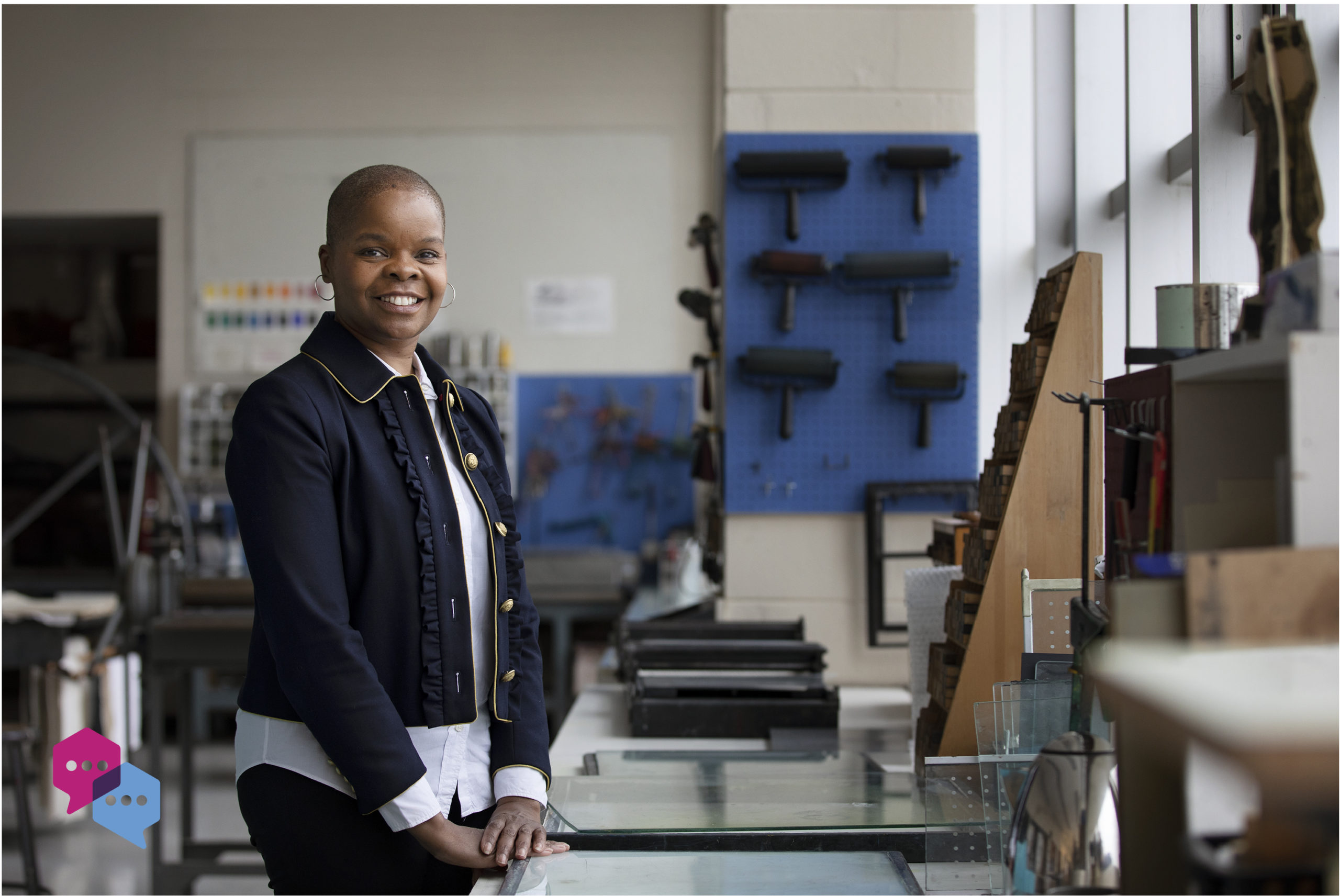Q: When you were a child, what was your response to this question: “What do you want to be when you grow up?”
A: A fashion designer or an artist. My mother taught me how to sew as a child, and I really enjoyed it. But what I loved most was straying from the commercial patterns and personalizing the clothing. I figured out how to make the garments come together without the patterns and, to my surprise, family and friends loved my work. As a child, I also painted, drew, and pursued other creative things all the time. In fifth grade, I met the mother of a close friend of mine who made her living as a painter. I was fascinated by this. I visited her regularly — and still do.
Q: Share the pivotal moment in your life that helped you choose your field of study.
A: In 1988, I attended a lecture by art historian Robert Farris Thompson. His research opened up new possibilities for me to understand African Americans’ presence in the Americas and their complex relationships with dominant cultures. When he bounded onto the auditorium stage at City College speaking Kikongo, then English, then Yoruba, then Spanish as he moved fluidly between discussing Lucumi altars in Cuba, nkisi kondi in Angola, and architecture of a candomblé temple in Brazil, I remember thinking, I want to do that and know that.
Shortly after that, I was working in the education department of a major museum in the Midwest. They had a significant collection of African art but lacked a curator. They asked me to curate an exhibition of that collection because they knew of my interest in it. I loved every moment of that experience. Public feedback and numerous press articles demonstrated that the exhibition was very well-received. When I asked about compensation for my work, I was told that I wouldn’t receive anything because I didn’t have three important letters after my name: PhD. That was extremely painful. I vowed that it would never happen again. Eight months later, I enrolled in an art history master’s program and, in 2004, received my PhD from Yale University.

In 2019, Williams visited Chicago’s Nevermore Park, a 6,000-square-foot immersive art experience by artist Hebru Brantley.
Q: Tell us about a time you encountered a tricky problem. How did you handle it and what did you learn from it?
A: As a graduate student, I volunteered to evaluate a collection of African art at a community college in Connecticut. Once I determined they had 655 objects, the director asked me to curate an exhibition using the entire collection. That many objects is a lot for one exhibition, especially in a relatively small gallery space. I decided to break up the space into three sections: a domestic space, a museum space, and a storage space. Each one was used by collectors, museum staff, and scholars to redefine African art objects. In this way, I displayed all 655 objects, as requested, in contexts that related to my theme of producing histories.
Q: Describe your research in 5 words.
A: “Representing the underrepresented in archives.”
Q: What are your passions outside of research?
A: Being physically active. Research is very sedentary. I love movement. I like walking, especially in cities. I do high-intensity interval training, row, and practice yoga. When I’m home writing and hit a block, I row. It clears my mind and gets my heart pumping faster. Movement allows my mind to wander and rest.


